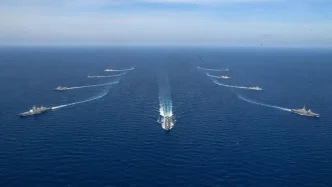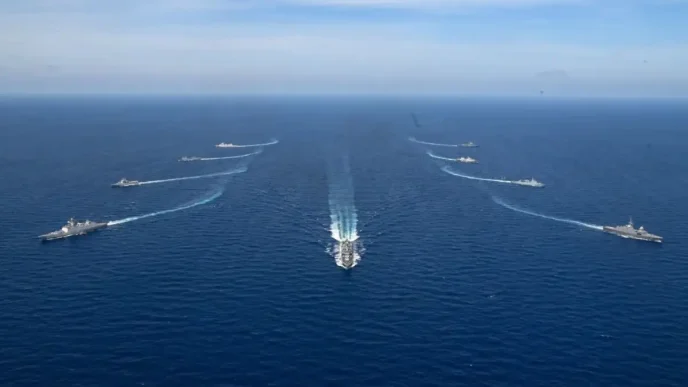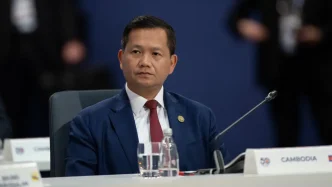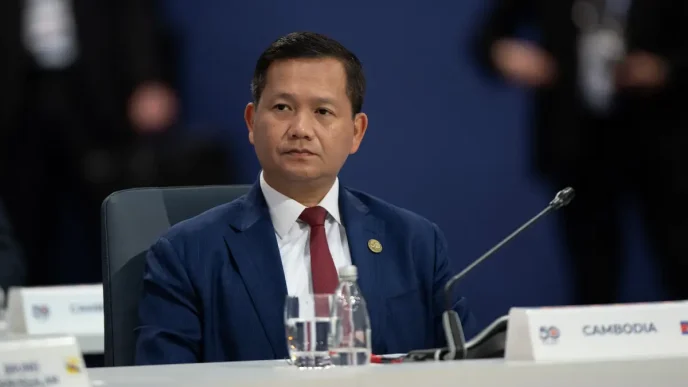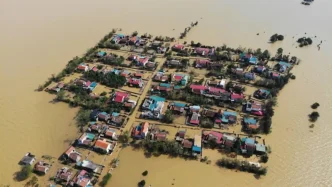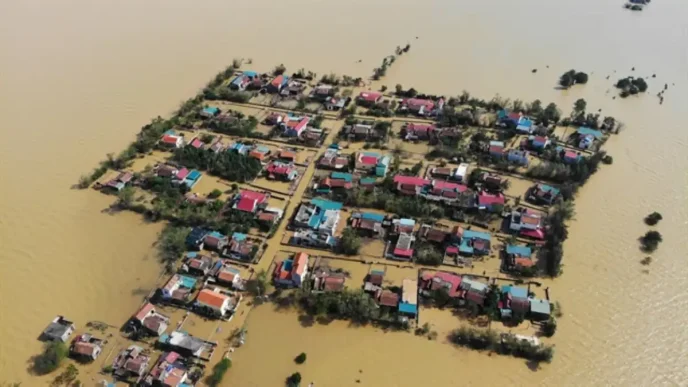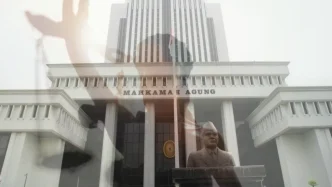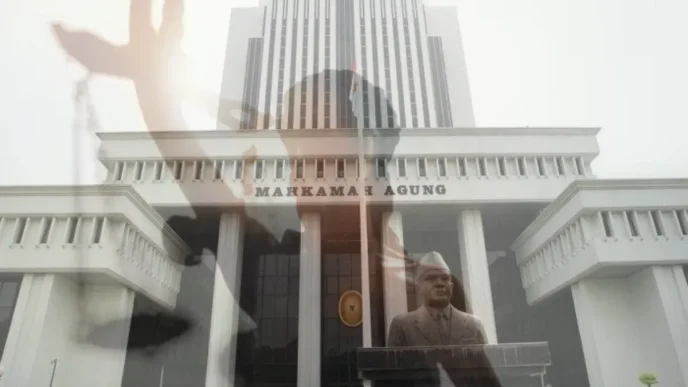In a heated session of Malaysia’s Dewan Rakyat (the lower house of the bicameral Parliament which is the federal legislature of Malaysia), a debate over infrastructure development under the 13th Malaysia Plan (13MP) spiraled into a personal clash between two parliamentarians, exposing deeper political fault lines. The exchange on August 4, 2025, between Pasir Mas MP Ahmad Fadhli Shaari and Hulu Langat MP Mohd Sany Hamzan, underscored not only policy disagreements but also the simmering tensions within Malaysia’s fractious political landscape.
A Highway Proposal Sparks Debate
The controversy erupted during a discussion on infrastructure priorities outlined in the 13MP, Malaysia’s five-year development blueprint. Ahmad Fadhli Shaari, representing Pasir Mas in Kelantan and a member of the opposition Perikatan Nasional (PN) coalition, proposed the construction of a new highway linking Gerik in Perak to Jeli in Kelantan. Advocating for a public-private partnership (PPP) model, he highlighted the inadequacies of the existing Federal Route 4, commonly known as the East-West Highway. Describing it as a narrow, two-lane road lacking a divider, he pointed out its susceptibility to accidents and frequent use by roaming elephants, posing risks to motorists.
The proposal was not merely a call for infrastructure improvement but a critique of the government’s regional development strategy, particularly concerning the state of Kelantan, which has historically been a stronghold of opposition parties like PAS (Parti Islam Se-Malaysia), a key component of PN. Ahmad Fadhli later expressed frustration over the lack of specific financial commitments for Kelantan in the 13MP, noting that while the state was mentioned in several strategic sectors, there were no concrete figures or allocations to back these references. This critique aligns with broader opposition narratives that accuse the federal government, led by Prime Minister Datuk Seri Anwar Ibrahim, of neglecting opposition-controlled states in development planning.
From Policy to Personal: A Heated Exchange
The debate took a sharp turn when Mohd Sany Hamzan, the Hulu Langat MP from the ruling Pakatan Harapan coalition, challenged Ahmad Fadhli’s proposal by questioning why such a highway project was not pursued during PN’s brief tenure in power between 2020 and 2022. In a pointed remark, Mohd Sany referenced Ahmad Fadhli’s mention of elephants and added a sarcastic jab, asking why he did not also mention apes and goats. The comment was a thinly veiled allusion to a recent controversy involving Ahmad Fadhli, who had posted a Facebook image depicting Prime Minister Anwar Ibrahim and two regional leaders as animal caricatures. That post drew widespread criticism for allegedly mocking Malaysia’s diplomatic efforts to mediate peace between Thailand and Cambodia, prompting calls for an apology.
Ahmad Fadhli’s response was equally sharp. He retorted that the animal references were quite fitting and suggested that Mohd Sany could include them in his own speeches, implying that the question reflected the character of the person asking it. This provoked an immediate backlash from Mohd Sany, who demanded a retraction, emphasizing that he had posed his question respectfully and reminding Ahmad Fadhli of his affiliation with PAS, a party rooted in Islamic values. “We’re friends. You’re from PAS, an Islamic party. That comment was rude and inappropriate” Mohd Sany stated during the session.
Speaker Intervenes as Tensions Escalate
The escalating row prompted intervention from Dewan Rakyat Speaker Tan Sri Johari Abdul, who sought to restore order by urging members to refrain from personal attacks. “There’s no need to talk about goats, camels, monkeys or cows. Everyone, sit down and carry on with the debate” he directed. The Speaker’s remarks aimed to steer the discussion back to policy matters, though the underlying friction remained palpable. Ahmad Fadhli resumed his speech, reiterating his concerns about the lack of clear budgetary provisions for Kelantan in the 13MP, but the personal animosity lingered in the chamber.
Broader Political Context and Regional Disparities
This parliamentary clash is emblematic of deeper political divisions in Malaysia, where coalition rivalries often spill over into personal and regional grievances. The 13MP, unveiled as a roadmap for economic recovery and sustainable growth post-pandemic, has been a contentious document, with opposition lawmakers frequently alleging that it prioritizes urban centers and ruling coalition strongholds over rural and opposition-dominated areas like Kelantan. The state, one of Malaysia’s poorest, has long grappled with underdevelopment, limited infrastructure, and economic marginalization, issues that opposition figures like Ahmad Fadhli have leveraged to critique the federal government’s policies.
The proposed Gerik-Jeli highway, while a practical infrastructure project, also carries symbolic weight. Federal Route 4, the East-West Highway, traverses challenging terrain and serves as a critical link between Peninsular Malaysia’s east and west coasts. However, its current state—narrow, undivided, and accident-prone—mirrors the broader narrative of neglect that opposition politicians attribute to the government’s development agenda. The mention of roaming elephants, while factual given the region’s proximity to forested areas, also provided an unfortunate opening for Mohd Sany’s sarcastic retort, amplifying the personal dimension of the debate.
Ahmad Fadhli’s controversial Facebook post, which preceded this parliamentary exchange, adds another layer of complexity. By depicting Prime Minister Anwar and regional leaders as animals, the post was perceived by critics as undermining Malaysia’s diplomatic credibility, particularly at a time when Kuala Lumpur has positioned itself as a mediator in regional conflicts. The incident has fueled accusations of insensitivity and irresponsibility against Ahmad Fadhli, with ruling coalition members like Mohd Sany seizing the opportunity to question his judgment and decorum.
Parliamentary Decorum and the Role of Personal Attacks
The use of personal insults in parliamentary debates is not a new phenomenon in Malaysia, where robust political competition often leads to heated exchanges. However, such incidents raise questions about the state of parliamentary decorum and the ability of elected representatives to focus on substantive policy discussions. The Speaker’s intervention, while necessary, highlights the challenge of maintaining civility in a polarized political environment. Tan Sri Johari Abdul’s directive to avoid animal references was a pragmatic attempt to defuse the situation, but it also underscores the recurring nature of personal attacks in the Dewan Rakyat.
For Mohd Sany, the exchange was an opportunity to hold the opposition accountable for past governance failures, particularly during PN’s administration under former Prime Minister Tan Sri Muhyiddin Yassin. His question about the highway project’s absence during PN’s tenure was a legitimate policy critique, but the accompanying sarcasm diluted its impact, shifting focus to personal animosity. Similarly, Ahmad Fadhli’s refusal to retract his counter-remark, despite Mohd Sany’s appeal to their personal rapport and shared cultural values, suggests a prioritization of political point-scoring over collegiality.
Policy Implications and Kelantan’s Development Challenges
Beyond the personal clash, Ahmad Fadhli’s critique of the 13MP’s allocations for Kelantan warrants closer examination. The state’s inclusion in strategic sectors of the plan—such as agriculture, tourism, and rural infrastructure—lacks the specificity of financial commitments, a concern echoed by other opposition figures. Kelantan’s economic challenges are well-documented, with high poverty rates and limited industrial activity compared to more urbanized states like Selangor or Penang. Infrastructure projects like the proposed highway could serve as economic catalysts, improving connectivity and attracting investment, but their feasibility under a PPP model remains uncertain without federal backing.
The East-West Highway’s condition also reflects broader issues in Malaysia’s rural infrastructure network, where safety concerns often intersect with environmental challenges. The presence of wildlife, such as elephants, on major roads is a known issue in regions bordering forested areas, necessitating innovative solutions like wildlife corridors or overpasses. While Ahmad Fadhli’s proposal did not delve into such specifics, it raises important questions about balancing development with environmental conservation, a recurring theme in Malaysia’s policy discourse.
Accountability, Power, and the Erosion of Parliamentary Norms
In Malaysia’s political landscape, much like in other democracies, traditional mechanisms for holding MPs accountable include electoral judgment and party discipline. However, these political checks often fall short of curbing abuses of power within parliament. Politicians like Ahmad Fadhli Shaari, whose recent behavior in Dewan Rakyat included personal attacks and insensitive social media posts, exemplify how power can be wielded with little restraint, especially when institutional accountability is weak.
Malaysia’s parliament, with its complex party hierarchies and coalition dynamics, can foster environments where personal animosities and unchecked privilege overshadow policy debates. Just as in Westminster, where MPs have historically used their authority to intimidate or silence critics, Malaysian politicians may exploit their positions to deflect criticism or provoke controversy, eroding public trust in democratic institutions.
The personal clash between Ahmad Fadhli and Mohd Sany Hamzan reveals more than just political rivalry — it reflects a broader culture in which decorum is sacrificed for political point-scoring. Ahmad Fadhli’s controversial Facebook caricatures and his refusal to moderate his language despite calls for civility highlight a troubling tendency toward using rhetoric that undermines Malaysia’s diplomatic standing and parliamentary dignity.
This kind of behavior feeds into a perception that some politicians operate as “petty tyrants,” prioritizing personal or party agendas over the public good. Victims of such abuses—whether in the form of political marginalization or social media attacks—often feel powerless in the face of entrenched power structures. The reluctance of parties to enforce strict disciplinary action only perpetuates this cycle.
While Malaysia’s political culture is gradually evolving, incidents like this underscore the urgent need for stronger codes of conduct, independent oversight, and a commitment to respectful dialogue in parliament. Without such reforms, the risk remains that personal vendettas and unchecked abuses will continue to detract from the nation’s development goals and democratic integrity.
Mr. Ahmad Fadhli, is the reduction of complex political discourse to such primal symbolism a reflection of your politics—or a warning about where it’s headed? Are you paving the way for Kelantan’s progress or merely fueling a jungle of division in Malaysia’s parliament?









